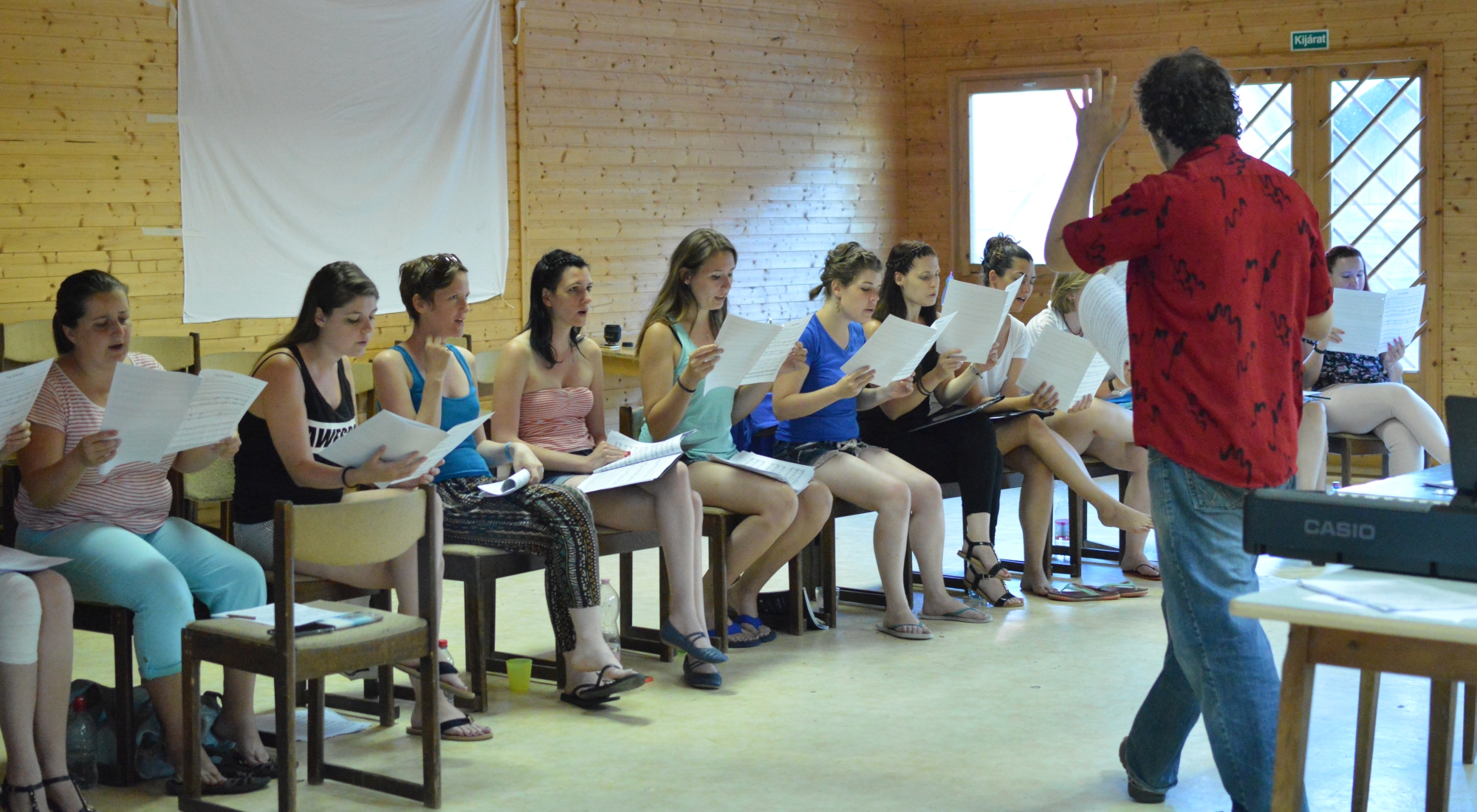
2018. 11 19. | education
[vc_row css=”.vc_custom_1542626501524{padding-top: 60px !important;}”][vc_column][vc_single_image image=”4084″][/vc_column][/vc_row][vc_row][vc_column][vc_column_text]
“Motivate” and motivate
[/vc_column_text][vc_column_text]Written by Csaba Tőri
19 November 2018[/vc_column_text][vc_column_text]I met a thought-provoking idea in a course that has changed my view about the world: ‘It is impossible to motivate.’
As a teacher this is a pretty bad news, if it’s true – moreover inside of my mind it was occurring immediately: what if this is just tricks with words? What does motivation mean for me, what it could mean for others – isn’t it possible that we simple think of different things?
Then it turned out that there is much to understand in it for me.
In my childhood in the school environment where we were raised up, there was just a few things to do freely in our free-time, and they were mostly obligatory or at least expected behaviours. (Is there anyone who saw the third season of the serial Therapy?
Our motivation towards certain topics couldn’t emerge: we did what we were allowed to do – and what we had to. And after a while we found pleasure in it: not because of the topic itself but instead the reinforcement from outside.
For a young child it is a great experience when the teacher gives full marks them for the well-done tasks, especially if they get chocolate for it, it will bring extra enthusiasm. (I won’t egg you to forget about this. Just in order to understand motivation on a deeper level, we must denude it.)
So, it doesn’t seem to be true that if I look at motivation, look back to my motivation as if I got to like singing, because my teachers induced me to do the right music, and that’s why I felt like doing it. (Once again, I must say it: I am not against giving full marks this way, since it can be an experience for the kids, and they could get love a topic when they understand their structure. I do not even criticize my teachers – I remember to most of my teachers as ones I liked to go to, and later, during my studies I realized that they could teach wonderfully. But it isn’t about motivation.)
The next sentence of this course was: “you can only strengthen motivation in those people where there was a seed of it. If you don’t have tiny little motivation in you towards a topic, there you won’t have it.
You can be motivated in different ways: there is a motivation that comes from outside, when I am working for a purpose, I do something for someone’s sake. And there is an inner motivation, when I do something for my sake, for my pleasure, to make myself happy or to recharge myself back. I think we tend to believe that there are topics where it is impossible, so we accept that for example we need to force ourselves to do long tasks in work, otherwise it won’t be ready at all.
Apart from some of the tasks that are like this, in most of the issues we have more choices than we allow to ourselves.
As a teacher I had to face the fact that pupils are not interested in the things I would like to teach them: they are not interested in that way or time, or at all. As a bad response for that – based on my experience from my childhood –, I thought that there can be only two solutions for that: either I do not teach good enough, interesting enough and I do not raise their attention or I do not expect them enough to take the task seriously. It’s a pity that it takes so much time to realize that although both of them could be true, none of them could bring so much improvement that can solve this problem: most of the kids isn’t interested in this type of education, especially music education anymore that was acceptable earlier for them.
Moreover, the forms of being not-interested-in has changed a lot (fortunately according to my opinion…): earlier the signs of it were supressed with giving respect by not showing it, but nowadays it is expressed much more easier and frankly by both the children and adults. (For example, by falling asleep, or saying nuts according to them).
Of course in an ideal situation a golden mean like one would be fine, but it is not a surprise that after so many decades and centuries where to measure up to the expectation was an absolute norm, in the first liberated moments we throw out the baby with the bath water.
We always want to believe in that the most the processes of civilization go in the right direction. (It would be a pity if we would destroy this, because for example we refer to that there is no climate change)
So returning to the subject: in a lot of situations we talk about motivation, where it is not about it, like we think we are motivated: but at least on the level of everyday duties we work, we could give ourselves to believe that we accept the necessary bad things. We complete the hated homework, read the required readings that are not proper for the age group, and do 3-4 hours overwork even if we do not feel like doing it. And finally, next week we stay at home on sick pay.
It would be so nice for me, if we could start to think about motivation in another way: everybody is interested in something, supposedly that with appropriate compensation all the tasks could be completed, we are enough for doing that.
To stay at my own example: for organizing a concert we need the desire of the singers to come into existence. But among them there will be some people who come for the joy of singing, some because of the exciting piece, and some people because they love others. (About the other dozens of resources of motivation experts who know more could write about it.
As soon as we found (or at least we try to find) these desires, most likely we could be productive, everybody takes part in the common work too with more pleasure.
A hypothesis occurred to me: there can be a world where no one (literally nobody) should do his duty by necessity. This world is far-far away from now, but probably pedagogy would help to reach there, if teachers could become so much attentive.
We started an experiment with one of my classes, after I found an article about disapproving the necessity of grading and replaced it with an evaluation system with scores. The result we experienced was surprising: we could achieve the double amount of the duties than before, although the tasks didn’t change, and the participants were almost the same.
Only one thing has changed: it was not obligatory anymore – if you do not complete it you won’t fail – and I do not need to worry about how to get people to do it if they do not want it. Furthermore: if I am not able to get them to do it – how the others would comment it…
It seems to be true that it works in small. I trust in that it is adaptable for more educational systems. In this topic there are a lot of valuable articles: if you feel motivated a bit, they will increase it.[/vc_column_text][/vc_column][/vc_row]

2018. 11 5. | choirsinging
[vc_row css=”.vc_custom_1541434181117{padding-top: 60px !important;}”][vc_column][vc_single_image image=”4125″][/vc_column][/vc_row][vc_row][vc_column][vc_column_text]
Should I become a musician, or should I play as a hobby?
[/vc_column_text][vc_column_text]Written by Csaba Tőri
5 November 2018[/vc_column_text][vc_column_text]As I’ve been talking a lot to professional musicians as well as to amateur ones, I came across this problem many times. How can I decide whether I should become a musician or just play the instrument as a hobby while having another job?
The answer is always difficult for people who ask themselves this question. Of course, there are musicians that don’t even care about this, but those usually come from a musician family and the examples help them a lot to prevail in this field.
Musical career is beautiful.
This is how it always starts and although we often experience its „dark side”, it really seems to be true as a basic thesis. If someone commit himself/herself to this job, 95% will become an instrumental artist or will work as a teacher. Without question, the „dark side” includes low salary, inner conflicts in the art wold, and the competition that exists in the musical world nowadays.
Usually when this question appears, people are about 16-20 years old, some of them study musical training, others study at music schools, orchestra or sing in a choir. Those who learn at a music conservatory usually get a wide range of education. For them it’s also a question whether to stay in the music industry or to do something else. For those who took it as a hobby often feel like they’re late, won’t get into conservatory or into university.
I think in both ways we deal with good dilemmas. I consider something as a „good dilemma” when whatever we choose as an answer, it’ll bring us closer to our goal. Meanwhile we may not have time to realise that what we’ve learnt at music school will not disappear. Sometimes we get job offers that requires musical background, which is useful for those who’s already qualified. For amateurs, this dilemma will tempt them until they make the great decision. It can take years, and as you make your decision, new perspectives will open as a musician or as something else.
One of my close friends asked me this question directly: Can you not do it?
If you can live your life without music, it’s better for you not to choose this field where only the best 5% will achieve something. I believe it’s very important.
Same time I think this dilemma is not always about your end goal – and from the realisation of this making a decision is going to be much easier. In life we must make thousands of decisions which will take us somewhere, but it doesn’t help if we take responsibility of our whole life beside every decision we make.
Many scientific resources show that 80% of the population don’t work in the field where he/she has the highest qualification. Then why people who’ve learnt as a musician must work as one for the rest of their lives?
If that is true, then the decision made at the age of 16-20 is not actually for a lifetime: it’s enough to decide what to study for the next couple of years. It’s a fact that having a professional background is essential to get well-paid jobs, but we probably won’t even know about the 60% scope of the position of the next 100 years.
Those who can easily adapt to the changing requirements, will be successful, and those who can’t will probably become less useful in this world of robots.
So, we don’t make our decisions for life (like 100 years ago). Quoting another close friend: „ it’s worth deciding what we want to learn, and let’s try to get to know it on the best level.”
And he continued with this: „But be careful not to become a diverse educated dilettante.” It’s not worth learning everything perfectly at the same time, because you can’t be successful. You need one thing that you’re excellent at and what you can build up your life on. But it’s becoming harder and harder to decide this at the age of 20.
So for those people who want to learn music, most of the time I encourage them to learn! As you get deeper into it, you’ll find the meaning of it, and its place in your life. Maybe you’ll need it in your profession, and maybe you’ll be proud that you’ve learnt it![/vc_column_text][/vc_column][/vc_row]

2018. 11 3. | choirsinging, ChoralVocalTraining, korushangkepzes
[vc_row css=”.vc_custom_1541271792877{padding-top: 60px !important;}”][vc_column][vc_single_image image=”7274″][/vc_column][/vc_row][vc_row][vc_column][vc_column_text]
How different is a vocal training of a choir?
[/vc_column_text][vc_column_text]Written by: Csaba Tőri
October 27, 2018[/vc_column_text][vc_column_text]In one word: a lot :)
When you found an amateur choir, you do not dream of building up a choir from well-educated singers. Of course, if it works well, there will be often choir members, who will feel ambition for more self-improving, but as a conductor you should expect that the “spine” of the choir will always be those who are engaged for the community, but do not consider themselves as professional musicians.
So that if someone would like to be a soloist, it usually happens that a choir will not too big motivation for them, moreover a lot of times they should give up the vocal training principles that are evident for them, because there is no other tool that help to assimilate into the common sounding.
A well-trained singer would solve any kind of situation naturally.
Sometimes it happens that after a couple of years of vocal training, they emerge from the community that launch their improvement; later the private lessons are cancelled, but they have no time to reconnect – so playing music will temporarily will disappear from their life.
Our aim is double, when we teach vocal trainings for choirs: on one hand we would like to have everyone to sing healthy without pain (since I wrote it first, I have realized how common this problem is); on the other hand we would like that everyone could do this in a way that the community they belong to could be around them.
We are over several concerts where we could experience that a singer’s vocal knowledge – let it be with awareness or skill-based – is essential. every play would be grateful when the singers learn not only the notes, but the technical part of it, even the whole music interpretation. Nevertheless, if somebody can do that, it is worth to step forward to the solo roles. Within our choirs we could observe that there was else that provided more improvement in self-esteem than a couple of arias or to sing a part of any musicals successfully.
Otherwise there is a difference in the technical exercises too: while a singer with professional ambition like to invest months or years in learning a technical element, an amateur singer won’t have so much time for it even they have a strong desire to do so. It needs to compromise a lot of times but establishing a kind of an illusion has extreme importance: if you believe and feel that it would be successful, it will succeed easier and later much better.
[/vc_column_text][/vc_column][/vc_row]

2018. 11 3. | choirsinging, ChoralVocalTraining, korushangkepzes
[vc_row css=”.vc_custom_1541271508472{padding-top: 60px !important;}”][vc_column][vc_single_image image=”7264″][/vc_column][/vc_row][vc_row][vc_column][vc_column_text]
Why the vocal training of each choir is different?
[/vc_column_text][vc_column_text]Written by: Csaba Tőri
October 27, 2018[/vc_column_text][vc_column_text]The answer seems to be very simple, and actually, it is simple, but it reserves so many interesting things, so it worth to have a post about it.
The reason behind of this is that each person has different voice capabilities. We are different in terms of volume, tone, pitch, and comfortable range, and our vocal strain ability and agility are important determination factors in the songs that are worth for us to sing.
As choir singers there is another aspect that is worth to focus on. When we choose a choir or a seat, on one hand it is good to pay attention to be among people with same type of voice, on the other hand to focus on technically how to sing.
Of course, an amateur choir works for the joy of singing primarily, and it has no priority to build technical know-how. Same time I could observe on my choir members that they could find their optimal neighbours, and their technical knowledge improved two-three times more within a couple of weeks. That is why it is so important, because the members within the choir started to assimilate to each other, so the conductor will also be happier, and the audience could expect more beautiful result soon. Anyway, be careful: avoid making this as a source of unnecessary tense. Some people will pay attention to this, others maybe would not be aware of this, but we also have an impact on each other by instinct. It would not be any good if this became another source of conflicts among people with different views. When we pay attention to enjoy ourselves vocally during the rehearsals too, for sure, the common experience of the choir would provide more value for us.[/vc_column_text][/vc_column][/vc_row]





Recent Comments